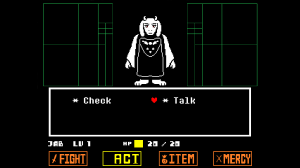The rise of kickstarter and crowdfunding has had the impact of pulling back the curtain on game development. Consumers now have a chance to actively watch a game go from a prototype to a full release. With that said, a little knowledge can go a long way, and presents an interesting debate on how much should consumers know about making games.
How the Sausage Gets Made:
Game Development for a lot of consumers is still a mystery; even for people working on their first game. It’s one of those things that you don’t really know about it until you start doing it. This makes it very difficult for journalists to cover games who have no experience on the dev side, and hard for developers to explain what goes into a title.
Speaking to developers over the last few years, what can be near impossible to do is to convey the scope of a game to the consumers. What happens when a promised game mode has to be cut? Can you explain that to thousands of people without them wanting to riot?
We are starting to see consumers who are at least somewhat knowledgeable about design, thanks to watching a game grow through early access or watching videos on the subject. However, this comes with a catch — You have consumers who think they know better than the designers and feel entitled to demand features.
There was the infamous case last year of someone claiming that multiplayer should only take a week to develop. Just because one game does X, doesn’t mean that the same can be done with other games.
That takes us to the big question for today’s post: How much should someone know about game development to enjoy video games?
Making and Playing Games:
Video Games can be appreciated by a wide audience. Our audience ranges from kids and casual players, to experts who may even mod their favorite games. You don’t need to understand how a progression system works in order to enjoy a game like Diablo 3 or Cookie Clicker.
And because of that, it’s not a necessity to cover game design or industry topics on major sites. A few weeks ago, there was the slight hubbub over frustum culling with Horizon Zero Dawn– Common knowledge for designers, but not so well-known for the general market.
But this represents part of the problem: Where can someone go to actually learn about game development? We talked about the issues with video game journalism a few weeks ago and how major sites spend more time on news of the day rather than design pieces.
Most major sites don’t have the time or resources to dedicate to this part of the game industry. There still is the issue of how much would an audience want to learn about game development.
In the last section, we talked about how you don’t need to understand game design in order to enjoy games; just like you don’t need to build cars for a living to enjoy racing. Another point is that there is no way to know the knowledge base of the people you’re talking to.
As an example, I’ve talked to people who play games or know about the industry, but have no idea what Undertale or the Humble Bundle were.
For you reading this right now, I know that may be a shock, but there is a big difference between the general and enthusiast sides of the game industry. For someone who just plays games casually and visits one of the major sites, would they want to read an article about procedurally generated design?
In fact, we’re going to have a little test right now, and yes, I’m talking to you. You may or not may not know this, but I do crosspost my pieces to various game sites on the Internet to help spread awareness for Game-Wisdom. This next part is going to be different on each site, and I want to see how knowledgeable you are about game design. Here we go:
Diablo 3 features procedurally generated loot, can you name the general term of the system that RPG designers make use of and explain how it works?
A Little Knowledge Goes a Long Way:
Video games are no longer a niche genre, but a multi-billion dollar industry. And yet, so much of what goes into making and working on games is still a mystery. I personally think that there should be more articles and discussion on the industry and the design process. With designers being more transparent about working on games, giving consumers the ability to understand will ultimately be a benefit.
If you want the consumer to understand what it takes to make a video game, then we need to provide the necessary information for them to learn. Of course we need to mention that not everyone is going to want or use this knowledge, but that’s okay; the point is that it’s out there.
If we want the next generation of designers to grow, then we need to stop hiding the information.
For those of you reading this, besides my site and YouTube channel Game-Wisdom, be sure to check out the GDC Vault and Gamasutra for more industry-related topics and discussions. And if there are any other useful resources, please let me know in the comments below.




